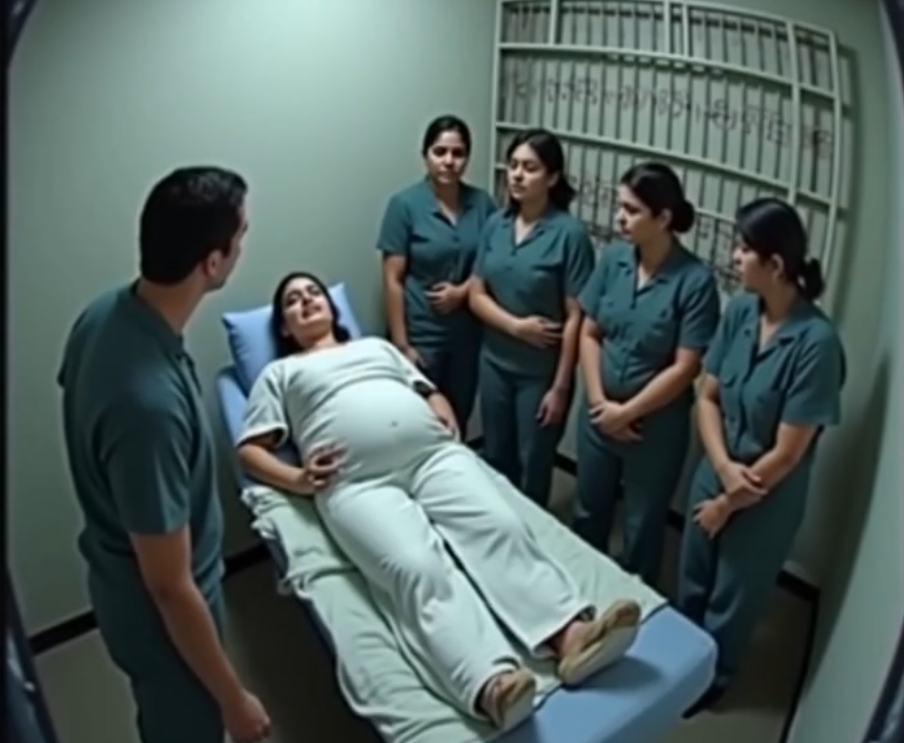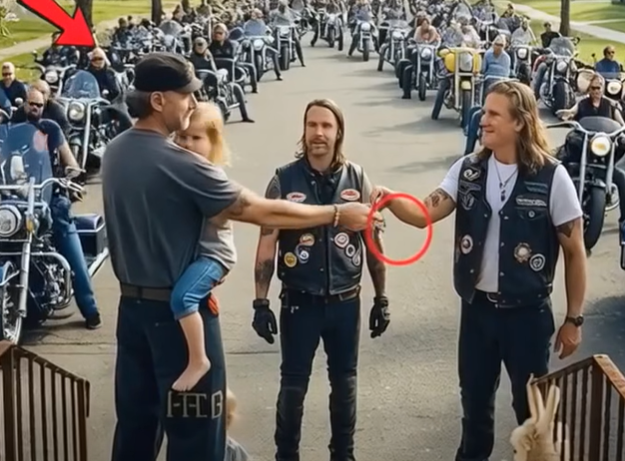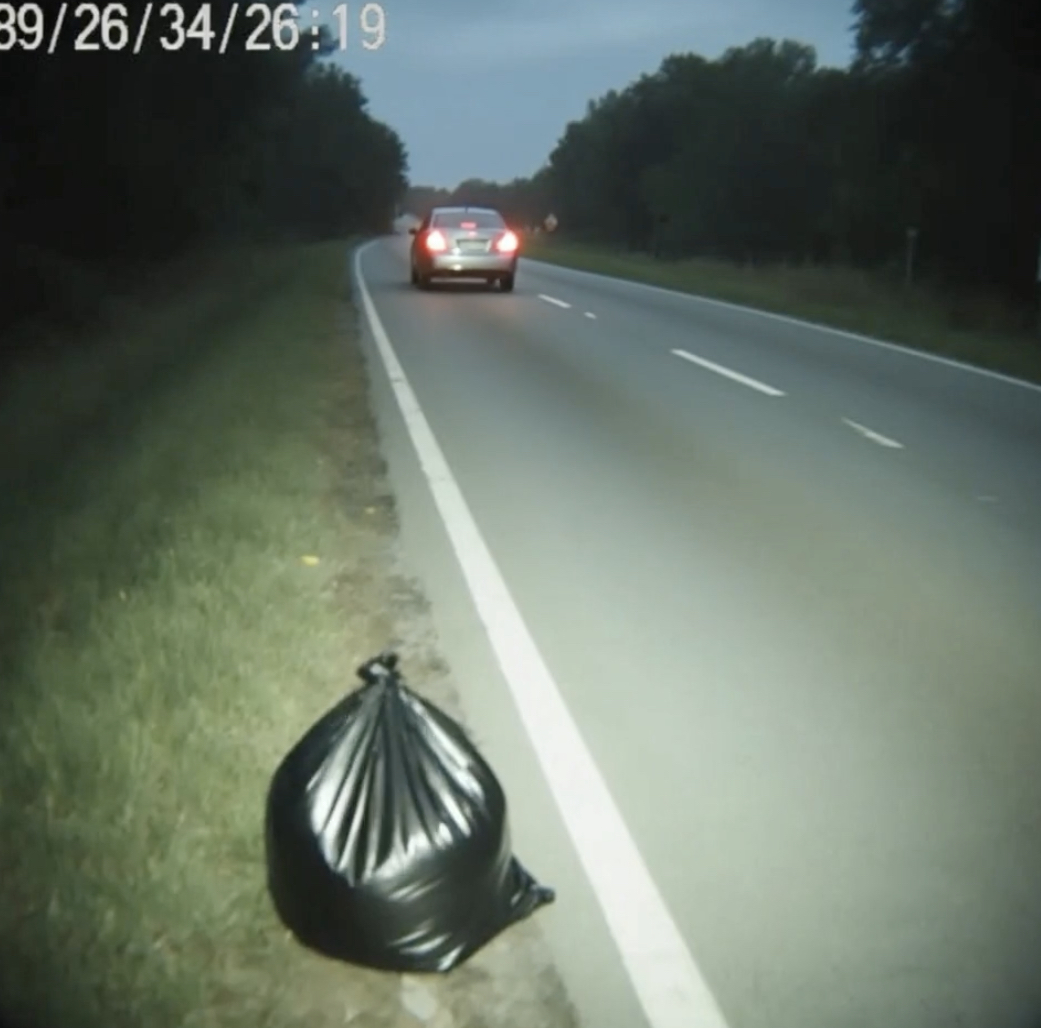
For illustration purposes only
“Enjoy the water, won’t you?” my daughter-in-law whispered near my ear, her tone honeyed and cruel. Then she gave a single, deliberate shove — and I went overboard.
My son, Adrian, didn’t move. He only stood by the railing, sunlight glinting off his sunglasses, lips curved into a calm, satisfied smile. It was the kind of smile that told me everything: they believed I would never reach the shore again.
After all, who would miss an old woman worth four billion dollars in assets, shares, and estates?
They returned to the villa that evening — flushed with false grief and feigned exhaustion — only to find me seated in my velvet armchair by the fireplace. Waiting.
But perhaps I should start from the beginning.
It was a bright Wednesday morning in Nice, and I was sixty-eight, recovering from a knee operation and foolishly clinging to the belief that family could never turn against blood. Adrian had called me himself that morning — not through his assistant, as usual.
“Mother,” he said warmly, “we thought we’d celebrate your recovery with a small cruise. Just the three of us.”
That tenderness should have warned me. But I longed for closeness. So I agreed.
I wore the sapphire-blue dress my late husband, Edward, had always loved, and made my way to the marina. The yacht gleamed under the Riviera sun, a floating palace. Camilla, my daughter-in-law, greeted me with a smile that looked rehearsed — perfect, practiced, polished.
“A beauty, isn’t she?” Adrian said, running his hand along the railing. There was pride in his tone — and hunger. The kind of hunger that fortune never satisfies.
For an hour, we drifted across the blue expanse, champagne glasses clinking, laughter practiced. Then, slowly, the conversation turned. Adrian began asking subtle questions about my holdings, my signatures, the structure of my trusts. Camilla lifted her phone for a “selfie,” recording every word as I sipped from my glass.
That was when I understood. They were constructing a narrative — one of confusion, of memory lapses. They meant to have me declared unfit to manage my own estate.
“Adrian,” I said quietly, setting my glass aside, “I’d like to return to shore.”
His smile stiffened. “That won’t be possible, Mother. You’re not well. You forget things. Camilla and I just want to help.”
“You’ve both lost your minds,” I said, though fear was already coiling in my gut.
Camilla stepped behind me and murmured softly, “Say hello to the fish.” Then she pushed.

For illustration purposes only
The Mediterranean was colder than I expected, and shock burned through me. I kicked off my shoes, broke the surface, gasping. The yacht was already pulling away, a white silhouette against the horizon.
I might have drowned — if not for the small fishing trawler that appeared minutes later.
The captain, an elderly man named Luca, and his teenage grandson hauled me aboard.
“Santa Maria! Signora, how did you end up out there?” Luca cried.
I clutched his arm. “Please… don’t tell anyone you found me. Not yet.”
He studied me a moment, then nodded solemnly. “Then we disappear quietly.”
At a secluded inn on the outskirts of Antibes, I gathered my thoughts. By evening, the headlines had already declared my “tragic accident.” Adrian cried in interviews, speaking gravely about my supposed dementia. Camilla, mascara smudged, played the perfect grieving widow’s daughter. They’d even chosen a photograph of me looking distracted at a charity gala.
My obituary was online before midnight.
That same night, I returned unseen to my old townhouse in Villefranche-sur-Mer. Inside, I found the truth spread across Edward’s mahogany desk — documents detailing staged medical reports, manipulated bank transfers, and a chilling folder marked “Project Helena” — my own name used as their code for elimination.
Every detail was meticulous: fabricated accounts of confusion, altered prescriptions, even statements from bribed witnesses. A typed note, signed only “V.D.,” urged them to act swiftly before I “noticed.”
I was photographing the evidence when I heard the front door open. Voices. Adrian and Camilla.
“The lawyer said the probate opens Monday,” Adrian said casually. “V.D. promised everything will be cleared in six weeks.”
And then I heard it — a faint cry upstairs. A baby.
The next day, with the help of Luca and a retired inspector named Henri Duval, I uncovered the full horror. Adrian and Camilla had arranged for a surrogate through a discreet clinic in Zurich. The birth mother — a young woman named Clara, barely twenty — had disappeared after delivery. The records claimed she’d died of complications, but Henri’s contact confirmed she had been perfectly healthy days before.
It became clear: my son and his wife were not only plotting my death, but were also entangled in a network that exploited vulnerable women and orchestrated the “compassionate removal” of wealthy elders. At the center of it all was their legal advisor — Véronique Delacroix, a name whispered in elite circles as the woman who turned inheritance into murder.
I decided that my return would not be silent.
When Adrian and Camilla came back from their meeting with Véronique, they found me in my armchair, a cup of tea in hand, the fire crackling beside me.
“Good evening, my dears,” I said softly. “How was your day?”
Camilla screamed. Adrian went pale, frozen where he stood.
Before they could speak, agents entered through every door. Henri had alerted Europol, and within days, Véronique’s empire of deceit collapsed — a labyrinth of fraud, trafficking, and murder unraveling piece by piece.
Adrian and Camilla received decades-long sentences. Véronique, the mastermind, was given life without parole.
As for the baby — yes, he was Clara’s son. I named him Edwardo Clara, after his grandfather and the brave young mother who never stood a chance.
I am seventy-three now, raising him myself in the quiet hills above Nice. He already knows the truth — in words simple enough for a child:
“Family isn’t the ones who share your blood,” I tell him. “It’s the ones who keep you safe when the world turns dark.”
And as I watch him play beneath the olive trees, laughter echoing across the terrace, I know this — wealth fades, power corrupts, but love, once reclaimed, is the only legacy worth leaving.





